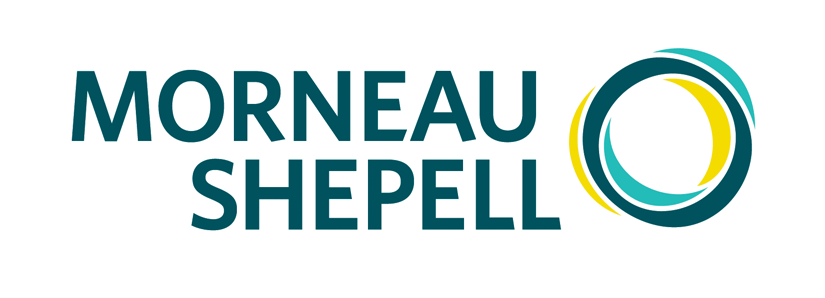- Place an order, or for other inquiries:
- 416-923-3567 ext. 3325
- content@newsmediacanada.ca
Almost three in 10 working Canadians indicate a worse financial situation due to the pandemic
Morneau Shepell’s inaugural Financial Wellbeing Index™ reveals a decline in Canadians’ financial wellbeing, with females doing significantly worse

TORONTO–/COMMUNITYWIRE/–Today, Morneau Shepell, a leading provider of total wellbeing, mental health and financial wellness services released the results of its new Financial Wellbeing Index™ report, revealing a decline in the overall financial health of Canadians since the pandemic. The report analyzes the financial health of Canadians by a range of demographics, geographies and industries, as compared to a pre-2020 benchmark.
The Financial Wellbeing Index™ score for January 2021 is -2.8. A negative score indicates a lower level of financial wellbeing among working Canadians compared to 2019, whereas a positive score indicates improvement. A notable difference in financial health is observed between those identifying as female reporting a significantly lower score (-5.1) compared to those identifying as male (-0.6), with males even reporting improvement in certain areas. This is observed across all areas that make up financial wellbeing scores, in particular for financial knowledge (-5.6 for females vs. +1.9 for males), impacts on work productivity (-2.9 for females vs. -1.7 for males), financial behaviour (-4.7 for females vs. -1.9 for males) and perceived financial situation (-5.3 for females vs. +0.2 for males).
“Employers are typically not aware of the amount of diversity in financial wellbeing in their population. People with the same salary could have vastly different levels of knowledge, different financial behaviours and very different perceptions of their financial situations,” said Idan Shlesinger, president, retirement solutions and executive vice president. “It is clear that financial wellbeing impacts mental health and work productivity, but a one-size-fits-all approach will not work to improve it. Rather, employer-based solutions need the flexibility to adapt to the diversity in situations and priorities that exists within populations.”
Canadians’ financial concerns are growing, but some individuals are taking more action than previously
As the effects of COVID-19 continue to impact many areas of home and work life, financial wellbeing remains top-of-mind for many Canadians. The report found that since the beginning of the pandemic, almost twice as many individuals surveyed believe that they are doing worse in terms of their financial situation (27 per cent) than those who indicate they are doing better (15 per cent). The situation is not improving, as one in five individuals (21 per cent) report increased financial concern than when compared to the prior three months.
As a result of these rising concerns, many Canadians are exploring strategies to strengthen their financial wellbeing. The research found that some Canadians are taking a more proactive approach to their finances, with 14 per cent of respondents indicating they are educating themselves more on financial matters than in the past, and 11 per cent prioritizing financial contingency planning.
Perception of financial situation taking a toll on Canadians’ wellbeing
Canadians’ perception of their financial situation appears to be impacting their wellbeing. The survey found that individuals reporting reduced salaries when compared to the prior month have the lowest financial wellbeing score (-18.0), followed by those who report fewer hours when compared to the prior month (-10.6). Surprisingly, the financial wellbeing score of those who are not currently employed seems to be impacted less (-4.6), potentially as a result of government supports or reduced expenses.
“Financial wellbeing is much more complex than income or even savings. Through the pandemic, many people have been saving more by default, but since this action has not been intentional or planned, it may not be beneficial in the long-term and we could see a surge in spending when the economy reopens as a way to make up for lost time,” said Paula Allen, global leader and senior vice president, research and total wellbeing. “The good news is that we are also seeing more openness to information and actions that can improve our financial wellbeing. With this, and with access to the right tools, financial guidance and support, there is a great opportunity to have the crisis of the pandemic put us in a better place long term, after we get past this initial strain.”
About the Financial Wellbeing Index™
The Financial Wellbeing Index™ by Morneau Shepell was conducted through an online survey in English and French from December 14 to December 23, 2020, with 3,000 respondents in Canada. All respondents reside in Canada and were employed within the last six months. The data has been statistically weighted to ensure the regional and gender composition of the sample reflect this population. The Financial Wellbeing Index™ is published quarterly, beginning February 2021, and compares against benchmark data collected in 2019. The full Canadian report can be found at https://www.morneaushepell.com/permafiles/93290/financial-wellbeing-index-feb-2021.pdf
About Morneau Shepell
Morneau Shepell is a leading provider of technology-enabled HR services that deliver an integrated approach to employee wellbeing through our cloud-based platform. Our focus is providing world-class solutions to our clients to support the mental, physical, social and financial wellbeing of their people. By improving lives, we improve business. Our approach spans services in employee and family assistance, health and wellness, recognition, pension and benefits administration, retirement consulting, actuarial and investment services. Morneau Shepell employs approximately 6,000 employees who work with some 24,000 client organizations that use our services in 162 countries. Morneau Shepell is a publicly traded company on the Toronto Stock Exchange (TSX: MSI). For more information, visit morneaushepell.com.
ID-CORP ID-RS
Contacts
Heather MacDonald
Morneau Shepell
media@morneaushepell.com
855-622-3327
Angela Pinzon
Kaiser & Partners
angela.pinzon@kaiserpartners.com
1-647-295-0517
